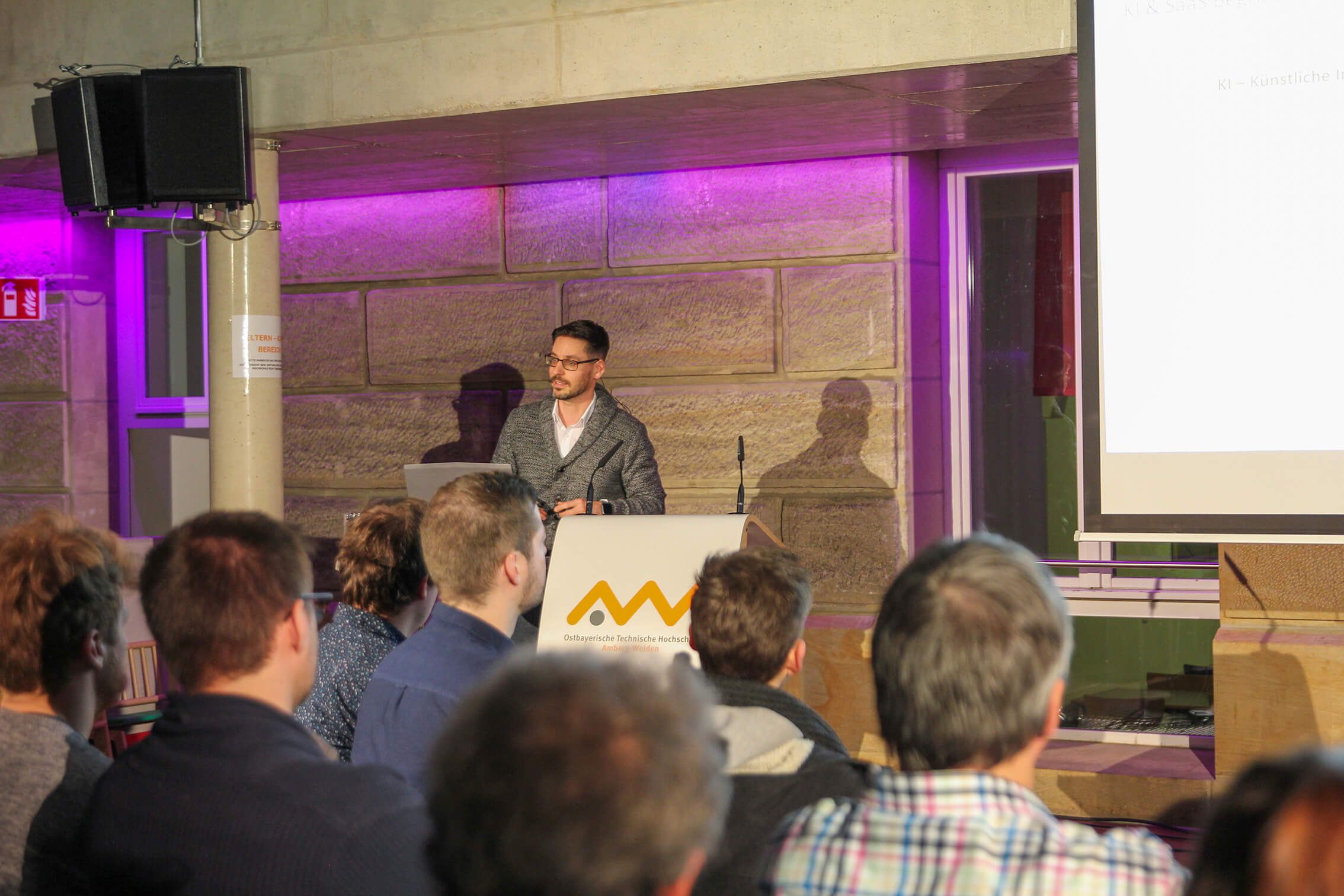EMI Forum: up2parts CIO Dr. Christian Heining sees great opportunities from AI
Weiden. Easy entry into the world of automation is just one of many beneficial aspects for industrial companies when it comes to using software-as-a-service solutions. Dr. Christian Heining, Chief Innovation Officer (CIO) at up2parts, provided practical insights around the use of artificial intelligence in industry during his presentation at the EMI Forum.

Image source: Sonja Wiesel, OTH Amberg Weiden.
The Faculty of Electrical Engineering, Media and Computer Science (abbreviated to “EMI”) at the East Bavarian University of Applied Sciences Amberg-Weiden and the AI Campus East Bavaria had invited experts, students and interested laypersons to address the topic of “Artificial Intelligence in Industrial Production”.
Top-class lectures
With Dr. Tilman Becker from the Czech Technical University in Prague, Dr. Martin Obermeier, Innovation Manager for Artificial Intelligence, Philipp Olenberg, Head of Artificial Intelligence (both Krones AG), and Dr. Christian Heining, top-class experts gave the conference an enormous depth of content with their exciting presentations. up2parts-CIO Heining spoke about the opportunities and risks of AI and SaaS applications in industry. In the winter garden of the refectory at the OTH campus in Amberg, he reported to the audience of around 50 people on his experiences with the development of AI solutions for manufacturing companies.
Heterogeneous data sources & domain knowledge
According to Heining, industrial AI in the B2B (business to business) sector is based on heterogeneous data sources. This refers, for example, to locally generated machine data, the analyzability of which depends heavily on the real application environment. Therefore, in addition to pure algorithm competence in the industrial environment, the decisive factor for the success of industrial AI deployment is above all specialist knowledge of the real production environment.
Important ingredients
Heining reported from insights gained in the development of AI-based SaaS solutions using the example of up2parts calculation, a cloud-based software for automated component calculation based on CAD models. According to the study, the most important “ingredients” of such a solution include, in addition to the central added value, time-saving automation, continuous improvement of the software and simple connection of local data sources.
Opportunities of Software-as-a-Service
In addition to the easy entry into the world of automation, Heining sees the unnecessary investment in infrastructure or personnel as a central advantage of SaaS solutions for industrial companies. The “gentle” introduction of production employees to a new technology is also a plus. However, challenges are to be seen in the area of data security and the transferability of AI solutions to individual use cases.
The EMI Forum presentations can be found on YouTube.
